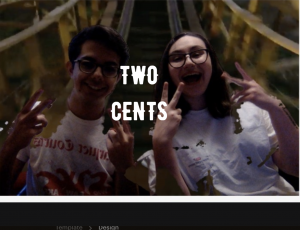Much-anticipated financial aid packages began to be released by the university in the late afternoon of July 31.
As the evening progressed, it became evident a significant group of students was asked to pay more than they did the previous year, for many without any changes to their financial circumstances. Since then, students have called on the university to address the situation and increase aid to meet the needs students have expressed.
According to a press conference held by GUSA officials on Aug. 3, approximately 1,400 students have received their financial aid packages. Another 1,600 students, including freshmen, students living on campus, and RAs, have not yet received financial aid information. GUSA’s Financial Aid Package Survey reported that 14.5 percent of students saw a $1,000 to $5,000 difference between their 2019/2020 and their 2020/2021 offer, 19.4 percent saw a $5,000 to $10,000 difference, and 19 percent saw a $10,000 to $20,000 difference. A small number of students saw packages change by over $20,000.
Following critiques, Dean Patricia McWade of Student Financial Services sent an email to students on aid on Aug. 4, announcing that, in an effort to ensure that all students benefit from the 10% tuition reduction, a tuition credit of up to $2,900 would be posted to the accounts of students whose expected parent contribution for tuition is $2,900 or more. Students whose family contribution is less than $2,900 will receive credit equal to the expected contribution, effectively covering tuition.
While the Voice cannot confirm how many students this change will help, according to GUSA’s Financial Aid Package Survey, nearly 50 percent of students saw their offers change by more than $5,000. For those students, the $2,900 won’t make up the difference. The newest email addresses some of the concerns raised by students responding to their aid packages, such as promising to help cover expected summer savings for students unable to secure summer work—according to GUSA’s survey, just over half of the respondents said that they couldn’t find and maintain paid employment or internship during this summer.
However, students say the offers sent out on July 31 pose challenges to those being asked to pay a significant amount of more money for an online education.
Additionally, in an email on July 7 from Vice President for Student Affairs Todd Olson, the university promised that a “modest living allowance” would be included in the adjusting of financial budgets for the fall. While there has been no official update on these allowances from the university, emails from advisors would suggest that the allowance was included in living expenses.
Georgetown did not respond to a request for comment before the deadline.
One student, who wished to remain anonymous to protect personal information and will be referred to as Jonathan, was shocked when he opened his email that Friday and realized he was going to have to pay twice as much as he did last year without any changes to his family’s financial situation.
“We were hoping that we would be paying less,” Jonathan said. “We thought there was no way in the world that the university would have the audacity to have us pay more and only let us know on July 31st.”
Jonathan’s family wasn’t stressed about financial aid being released so late in the summer. There was no way they would be asked to pay more than last year, Jonathan thought, so when he got the email about his offer he was expecting good news. The reality, Jonathan said, was mind-boggling.
A doubled cost of attendance for Georgetown puts his family in a difficult position.
“There were definitely lots of tears, especially because before I got into Georgetown from the waitlist, I had committed to a state school to go on a full-ride completely, and they were actually going to pay for my textbooks and my travel costs and everything,” Jonathan said. “The only reason that we said we could do Georgetown was because of how much generous financial aid they were giving us. So if they had given us this package last year I would definitely not be at Georgetown.”
Jonathan’s expected family contribution (EFC) from Georgetown, a measure of a family’s financial security used in determining eligibility for aid, doubled from last year’s, despite there being no significant change to his financial circumstances. The scholarship of $60,000 that Jonathan was awarded last year dropped to $30,000. Jonathan’s mom was so confused by the situation that she thought that she could’ve filled out something wrong on the forms but to Jonathan, this seems unlikely, because his FAFSA EIC was basically the same.
“On the FAFSA itself, the EFC that FAFSA determines we have is the same as last year, but Georgetown has determined our EFC has doubled,” he said. “So even if something was filled out wrong, the FAFSA is saying we should still be paying as much as we did last year.”
Jonathan has cross-referenced his EFCs, trying to understand why Georgetown came up with such a different number than FAFSA. He feels that it would be hard to make any case to the university appealing for more aid.
“It’s pretty difficult to push back on them about it because they don’t have a lot of transparency in the financial aid process,” he said.
Concerns over transparency, along with many others, were highlighted in a petition released by GUSA on Aug. 2.
The petition is addressed to University President John DeGioia, Provost Robert Groves, Chief Operating Officer Geoffrey Chatas, Olson, McWade, and other members of the Georgetown administration. As of Aug. 4, the petition had 929 student signatures and had been signed by over 75 organizations.
Included in the petition are a collection of anonymous testimonials from students, many of which expressed an inability to afford Georgetown based on their financial aid package for the fall. The testimonials tell stories of students who have unstable financial situations and are working multiple jobs to support themselves.
The petition demands include a full reappraisal of already released packages and re-evaluation of those pending releases, which include packages for freshmen, an extension of the financial aid acceptance/decline timeline, and a transparent and simple appeals process. The petition also demands a waiver for the student minimum contribution requirement, an overhaul in how Georgetown calculates financial aid, and more information from the university on how they determine aid packages.
Georgetown takes both the FAFSA and the CSS Profile into consideration when calculating aid. According to GUSA Senator Eric Bazail-Eimil (SFS ’23), this system is likely part of why the FAFSA EFC is often different from the Georgetown one.
According to Bazail-Eimil, the formula that Georgetown utilizes is only used by twenty other universities, and there’s not a ton of guidance. To him, a lack of clarity about the formula on the part of students only helps the university. “They benefit really from having a system that is super obscure and opaque because it doesn’t allow you to easily navigate through it,” he said.
For these reasons, he said, GUSA senators are pushing for a “systemic overhaul” of how Georgetown calculates financial aid. This was announced in a statement released by six GUSA senators on Aug. 2, including Bazail-Eimil, that accused the university of not meeting the full needs of students or prioritizing first-generation low-income students.
“This is literally a student’s life or death decision, they could forever bankrupt themselves if they make the wrong decision right now,” Bazail-Eimil said. “And the university needs to step up.”
According to Bazail-Eimil, students may be able to get their lease covered by financial aid if they email their advisor, which is not something that’s been widely publicized. Students who feel that their aid doesn’t cover their needs can send their leases, any summer work information, and a narrative describing their financial situation to their financial aid officer, which could help increase aid, according to GUSA President Nico Ferretti (SFS ’21).
Another concern for students is federal work-study jobs in a virtual work environment.
According to GUSA’s Survey, 77.5 percent of students who applied for aid were offered work-study as part of their financial aid award package. For William Leonard (COL ’23), the work-study offer actually creates more worries.
“I got federal work-study again, but I really don’t know how many opportunities Georgetown is going to have now,” he said. “I used to work in Lauinger Library on federal work-study and obviously they’ve gone completely online, and I haven’t heard from my old supervisor but she said that last semester it was pretty much going to be impossible to be able to continue to do the work that I was online.”
Leonard is worried about how many hours of work-study people will get and whether or not federal work-study jobs will be available remotely. Administrators have not promised there will be a certain number of jobs and indicated students may have to apply to several positions to secure one.
If Leonard can’t secure a work-study job, this would create more financial problems for him and his family, as his federal work-study is supposed to account for $3,200 of his expenses. “If I didn’t get the job, I would have to come up with that money or my parents would, because we’re still financially responsible for it,” he said. “If I don’t get work-study, I can’t come up with $3,200 easily.”
The situation created by the uncertainty of work-study and reduced scholarships has been very stressful for students like Leonard. “Aside from when I had to move out and like evacuate my dorm, this has been the most stressful thing that’s happened since I was at Georgetown,” he said. “It is just really disappointing and outrageous in that I feel like no one’s listening to me.”
As students organize, sign petitions, and continue to demand more from their university, Leonard hopes it will be difficult for Georgetown to ignore the situation and the students in need.
“It’s very hard to ignore this, whether it be Twitter or email or just interpersonally amongst people, it’s very hard to ignore that this has happened to a large segment of the student body,” he said. “And I think that that is comforting because I know that when I say things, it won’t be ignored.”







[…] proportion of Georgetown’s student body, as students found their aid from previous semesters slashed, and their expected family contribution […]
[…] proportion of Georgetown’s student body, as students found their aid from previous semesters slashed, and their expected family contribution […]